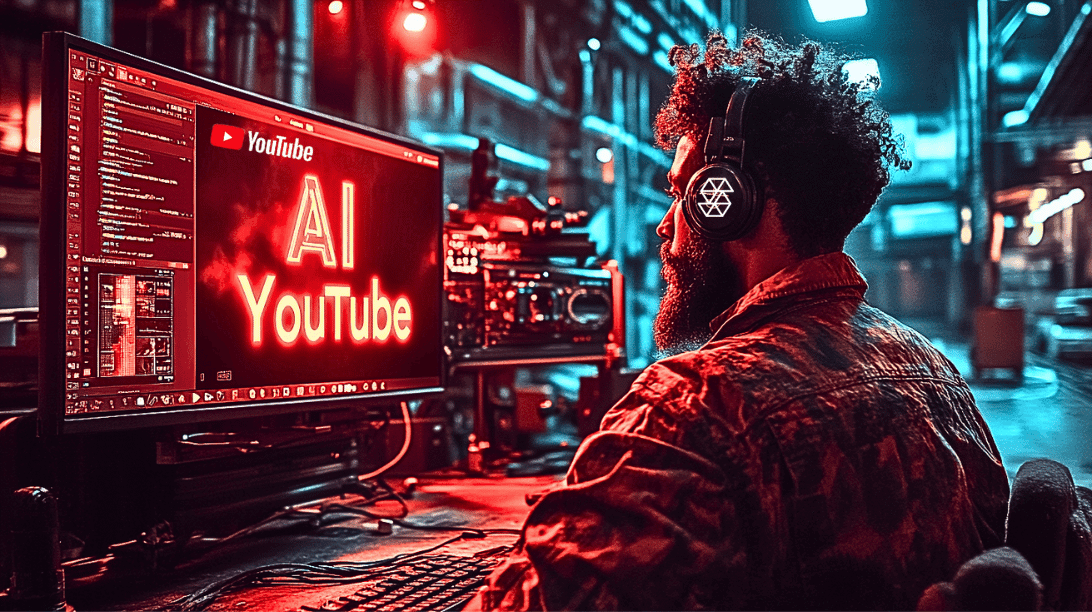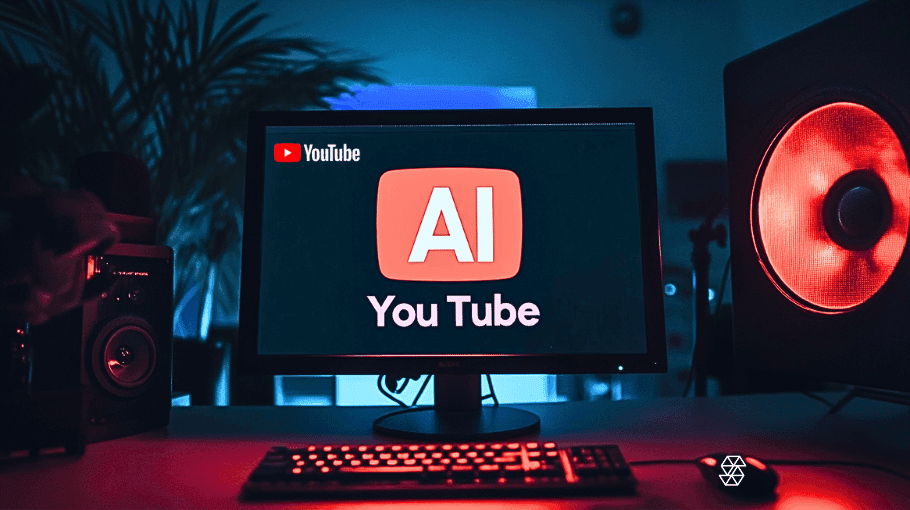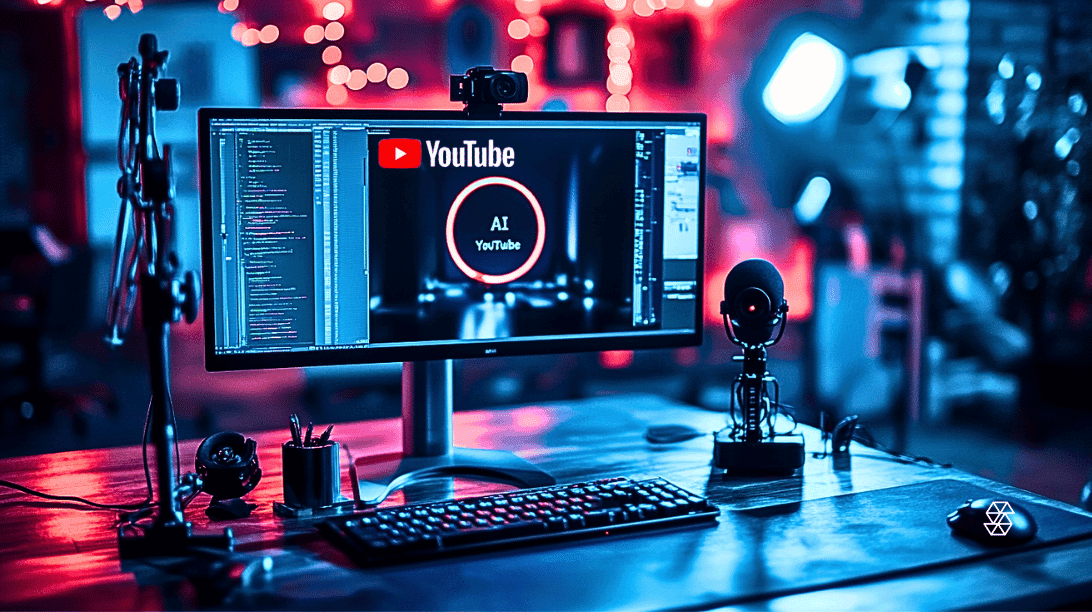5 Ways Endless, Customizable AI Content is Changing Marketing
The era of AI-driven content creation and marketing marks a monumental shift, creating an environment where every individual and small enterprise team has access to highly customizable, endless AI content. AI tools such as generative AI bots, text-to-video, text-to-image, and speech-to-speech or synthetic voice are not only enhancing but radically transforming how we approach content creation. This change is set to redefine the strategies of marketing teams and the operations of enterprises globally.
In this blog, we explore the profound implications of this democratization. At Skim AI, we have experience with this first hand, implementing AI throughout our content pipeline. With this approach, we have achieved exponential growth in our content numbers.
We’ll see how these advanced tools are leveling the playing field, enabling even small teams to produce content that rivals larger companies in quality and creativity. The surge in AI-generated content is intensifying competition, challenging us to rethink how we differentiate in a crowded digital landscape. Moreover, the blurring lines between AI-generated and human-created content raise crucial questions about authenticity and trust.
As we delve into these transformative effects, our focus is on understanding how this widespread access to AI tools impacts businesses, entrepreneurs, and marketers. This shift goes beyond enhancing the creative process – it’s about reimagining it. AI is now a critical component in creating diverse, engaging content quickly and efficiently, reshaping the standards for SEO-optimized blog posts, and redefining long-form content in the digital marketing arena.
- 1. It will cause a huge increase in content competition online.
- 2. It will blur the lines between what is real and fake.
- 3. It will enable any small team or entrepreneur to create scalable content like a large enterprise.
- 4. It will lead to a lot more hyper-personalized content.
- 5. It will cause many websites to be banned from Google due to new policy on “unhelpful content.”
- Embrace AI with Strategy and Creativity
1. It will cause a huge increase in content competition online.
The advent of AI tools in the realm of content creation has brought about a significant shift in the digital marketing landscape. With high-quality content now just a few clicks away, thanks to AI-generated text, images and video, AI experts and content writers, and advanced AI models, the barrier to entry for creating scaled content is within reach to more enterprises and entrepreneus. This accessibility means that more businesses and individuals can generate content, flooding the market with a diverse array of digital media. But as a result, the competition for audience attention has intensified more than ever.
For businesses looking to navigate this crowded space, standing out requires a strategic approach. Merely creating content is no longer sufficient; what’s needed is content that not only leverages the capabilities of AI tools for efficiency but also embodies a unique voice and innovative angle. Utilizing AI for generating SEO-optimized blog posts, long-form content, and visually engaging digital marketing materials is just the starting point.
To truly differentiate themselves, enterprises must combine the efficiency of AI with the nuances of human creativity. Additionally, focusing on the creative process to produce content that resonates on a human level—be it through storytelling, emotion, or relatable experiences—becomes crucial in a landscape where AI-generated content is becoming the norm.
Businesses must also explore multiple languages and cultural contexts, especially when targeting a global audience. AI tools are remarkably adept at creating multilingual content, but understanding cultural nuances and localizing content is where human insight becomes invaluable. By harmonizing AI’s efficiency with human insight, businesses can not only stay competitive but also lead in the ever-evolving digital content arena.

2. It will blur the lines between what is real and fake.
The advancement of AI tools in creating not just text, but also images, videos, and even realistic deepfakes, is blurring the lines between reality and AI-generated content. Today, AI-generated content encompasses a broad spectrum: from AI-written blog posts to visually captivating videos and images created in just a few clicks. This surge in diverse AI content, made possible by sophisticated AI models, challenges our ability to distinguish between what’s created by humans and what’s generated by artificial intelligence.
In the world of digital marketing and content creation, this presents a unique dilemma. The authenticity of content, a cornerstone of trust in digital media, is now under scrutiny. When an AI content writer can produce a compelling blog post or an AI tool can generate a high-quality video, the question of real versus artificial becomes more complex. This shift has significant implications for how audiences perceive content, impacting everything from consumer trust to the value placed on human creative processes.
Balancing the efficiency and capabilities of AI in generating SEO-optimized content, engaging videos, and striking images with the authenticity and ethical considerations of human involvement is crucial.
Businesses and content creators must navigate this new landscape with a strategy that emphasizes the strategic use of AI. The challenge is to leverage AI for its incredible potential to generate content while ensuring that the human element in storytelling and creativity remains connected to your audience. If your content comes across as 100% AI with no human involvement or targeting, your audience could become less engaged.

3. It will enable any small team or entrepreneur to create scalable content like a large enterprise.
The advent of AI tools in content creation is a game-changer for small teams and solo entrepreneurs, enabling them to produce content that rivals the output of larger companies. With AI-generated content, from text to visually stunning videos and images, the playing field in digital marketing and creative production is being leveled. This empowerment is largely due to AI models that simplify the content creation process, making it more accessible and less resource-intensive.
Imagine a small online retail business, with a team of just a few members, harnessing AI to create engaging marketing content. They use text-to-image AI tools like Midjourney to design eye-catching graphics for their social media, and text-to-video technology from platforms like Pika Labs for promotional videos, all with just a few clicks. This approach not only saves time and resources but also allows for rapid scalability in their marketing efforts.
Another example could be a solo entrepreneur running a blog who uses AI content writers or custom GPTs to generate SEO-optimized blog posts, thus significantly increasing their online presence. They might also utilize AI tools to create multilingual content, thereby reaching a broader, international audience. By leveraging these AI capabilities, the entrepreneur can compete with much larger entities in terms of online visibility and audience engagement.
Additionally, consider a small podcast producer using synthetic voice technology to create diverse content and reach listeners in multiple languages. This AI-assisted approach allows them to expand their listener base without the need for a multilingual team, breaking language barriers and creating a global presence.
These scenarios underscore the transformative impact of AI in leveling the playing field for content creation. Small teams and solo entrepreneurs are no longer bound by the constraints of limited resources or personnel. Instead, they are empowered to create high-quality, diverse, and engaging content, effectively competing in the digital marketplace and making significant waves despite their size.

4. It will lead to a lot more hyper-personalized content.
The advent of AI in content creation instead of strict human writing is changing marketing and customer engagement through the rise of hyper-personalized content. AI tools are now capable of analyzing vast amounts of data to tailor content to individual preferences and behaviors, enabling businesses to reach their audience in a more targeted and effective manner.
AI-generated content, armed with the insights from artificial intelligence, allows for a level of customization previously unattainable. Imagine a digital marketing campaign that uses AI models to parse through customer data, creating content that resonates with each segment of the audience. This could range from personalized AI-generated text in email marketing to tailored video content on social media, each piece designed to appeal to the unique interests and needs of different user groups.
This shift to hyper-personalization is evident in how AI content writers can now produce blog posts and long-form content that not only addresses broad topics but also hones in on niche interests. By leveraging AI tools, businesses can create content in multiple languages, ensuring that the message is not just personalized but also culturally and linguistically relevant.
Furthermore, the ability of AI to generate content extends to predicting future consumer trends and behaviors. This predictive power means that businesses can stay ahead of the curve, creating content that not only resonates with their audience now but will continue to do so in the future.
The rise of hyper-personalized content signifies a major shift in digital marketing strategies. No longer is it sufficient to create generic, one-size-fits-all content. In the era of AI, the focus is on creating content that connects with each individual, enhancing customer engagement and fostering a deeper brand loyalty. This level of personalization, made possible by AI, is transforming the way businesses approach content creation and audience interaction.

5. It will cause many websites to be banned from Google due to new policy on “unhelpful content.”
In an era where AI-driven content creation tools are becoming increasingly ubiquitous, a significant challenge emerges in the form of Google’s stricter stance against “unhelpful” content. As AI content writers and sophisticated AI models make it easier to generate a high volume of content, there’s a growing risk that such content might be perceived as generic or lacking in value, potentially leading to severe repercussions for businesses.
Google’s evolving algorithms are now more adept at identifying and penalizing content that fails to add meaningful value to the reader. This crackdown on unhelpful content means that businesses could face the risk of having their sites significantly downranked or even removed from search results. Such a scenario would be devastating, effectively wiping a business’s digital presence off the face of the internet overnight.
To navigate this landscape, it’s crucial for companies to ensure that their AI-generated content is not just SEO-optimized but also genuinely helpful, unique, and engaging. While AI tools can efficiently create content and even tailor it to specific keywords and SEO guidelines, the emphasis must be on creating content that offers real value to the reader. This could involve integrating unique insights, detailed analysis, and personalized elements that go beyond what generic AI-generated content can offer.
Additionally, companies should focus on differentiating their content by blending AI capabilities with human creativity. This blend can produce content that not only aligns with SEO best practices but also resonates on a human level, thereby enhancing the reader’s experience and engagement.
The shift in Google’s policy serves as a reminder of the need for a thoughtful approach to using AI in content creation. It’s not just about leveraging artificial intelligence to generate content but doing so in a way that prioritizes uniqueness, value, and relevance. This approach will not only safeguard businesses from potential search engine penalties but also contribute to a more valuable and rich online information landscape.

Embrace AI with Strategy and Creativity
As we’ve explored the transformative effects of AI on content creation, it’s clear that this technological evolution presents both immense opportunities and notable challenges. From intensifying competition and blurring the lines between real and AI-generated content, to empowering small teams and demanding higher standards of content quality, the landscape is rapidly changing. Businesses must not only embrace AI tools for their efficiency and versatility but also approach their use strategically, ensuring that the content they generate is unique, engaging, and valuable.
The rise of AI in content creation is not just about adapting to new tools; it’s about rethinking the way we create and disseminate information. As we move forward in this AI-driven era, the key will be to blend artificial intelligence with human creativity and insight, creating content that not only ranks well on search engines but also genuinely connects with and enriches the audience.
If you would like to learn more about integrating AI into your content creation and marketing, reach out to us.






